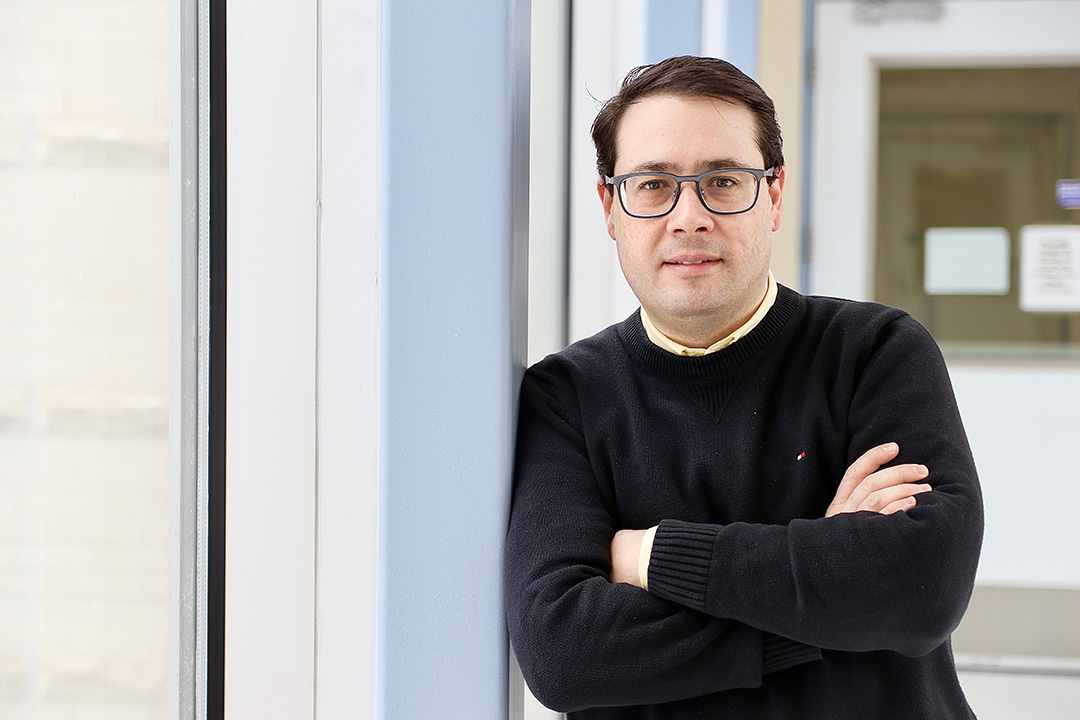
USask recruits top tier dentistry researcher
An international leader in salivary research and how it can be an overall health indicator has joined the University of Saskatchewan (USask) College of Dentistry.
Dr. Walter Siqueira’s saliva and salivary components research provides a wealth of information about how our bodies work and can be used in the detection, prognosis and treatment of oral and systemic diseases. He is also one of the first and only dental clinician-scientists in Canada conducting salivary proteome research.
“This research is important and exciting,” said Dr. Siqueira. “We have been using saliva to look at oral health, but now we’re taking a step further and using it to look at the overall, systemic health of individuals. By doing so, we are changing the way diagnostics will look. We are providing a non-invasive, simpler method to provide individuals with a diagnosis and prognosis.”
Dr. Siqueira leads the Salivary Proteomics Research Laboratory and his research recently led to the identification of a specific protein signature for the Zika virus, increasing the detection period for the disease from four days to over 20.
As professor and acting associate dean, Graduate Studies and Internationalization in the College of Dentistry, Siqueira’s research at USask will continue to explore how saliva can be the root cause of many diseases and Siqueira has already developed an innovative nanoparticle method that protects salivary proteins from degradation and subsequently prevents oral diseases. He is also heavily involved in the identification of salivary biomarkers for non-invasive, early and easy diagnosis of global diseases.
“I am thrilled to welcome Dr. Siqueira to the College of Dentistry at USask,” said Dr. Doug Brothwell, dean of the College of Dentistry. “His arrival at the college will expand our research capacity in new and exciting ways. We look forward to supporting Dr. Siqueira in his research initiatives and having such a world-renowned researcher and professor to teach and support our students.”
Siqueira’s research program is unique in Canada, and one of only a few in the world in this area of applied salivary research. He continues to explore the role that saliva can play in the overall systemic health of an individual, and is one of the principle investigators for the Interdisciplinary Canadian Collaborative Myalgic Encephalomyelitis Research Network which just received a $1.4 million grant over the next five years from the Canadian Institute of Health Research (CIHR). His research group will be responsible for using saliva to identify biomarkers for Myalgic Encephalomyelitis (ME), or Chronic Fatigue Syndrome, as well as the creation of a saliva biobank of ME.
“The College of Dentistry at USask is a wonderful place to be, and I’m proud to be a part of it,” said Dr. Siqueira. “Research and teaching are my passion, and I’m excited to continue preparing the next generation of dentists and oral health researchers here at the college.”
In addition to the $1.4 million grant from the CIHR awarded in 2019, Dr. Siqueira has two other CIHR operating grants. These projects investigate new ways to prevent and treat cavities by using salivary protein and peptides.
In addition, to his research and teaching activities, Dr. Siqueira started his term as president of the Canadian Association for Dental Research, focused on the next generation of oral health research in Canada.
He is considered an international authority in the field of Salivary research, with more than 90 peer-reviewed papers published in the most prestigious dental and biochemical journals. He is a recipient of the W.W. Wood Award for Excellence in Dental Education by the Association of Canadian Faculties of Dentistry, the 2012 Salivary Researcher of the Year award from the Salivary Research Group, International Association for Dental Research (IADR) and the 2019 IADR Distinguished Scientist Award, the most prestigious international award in oral health science.

